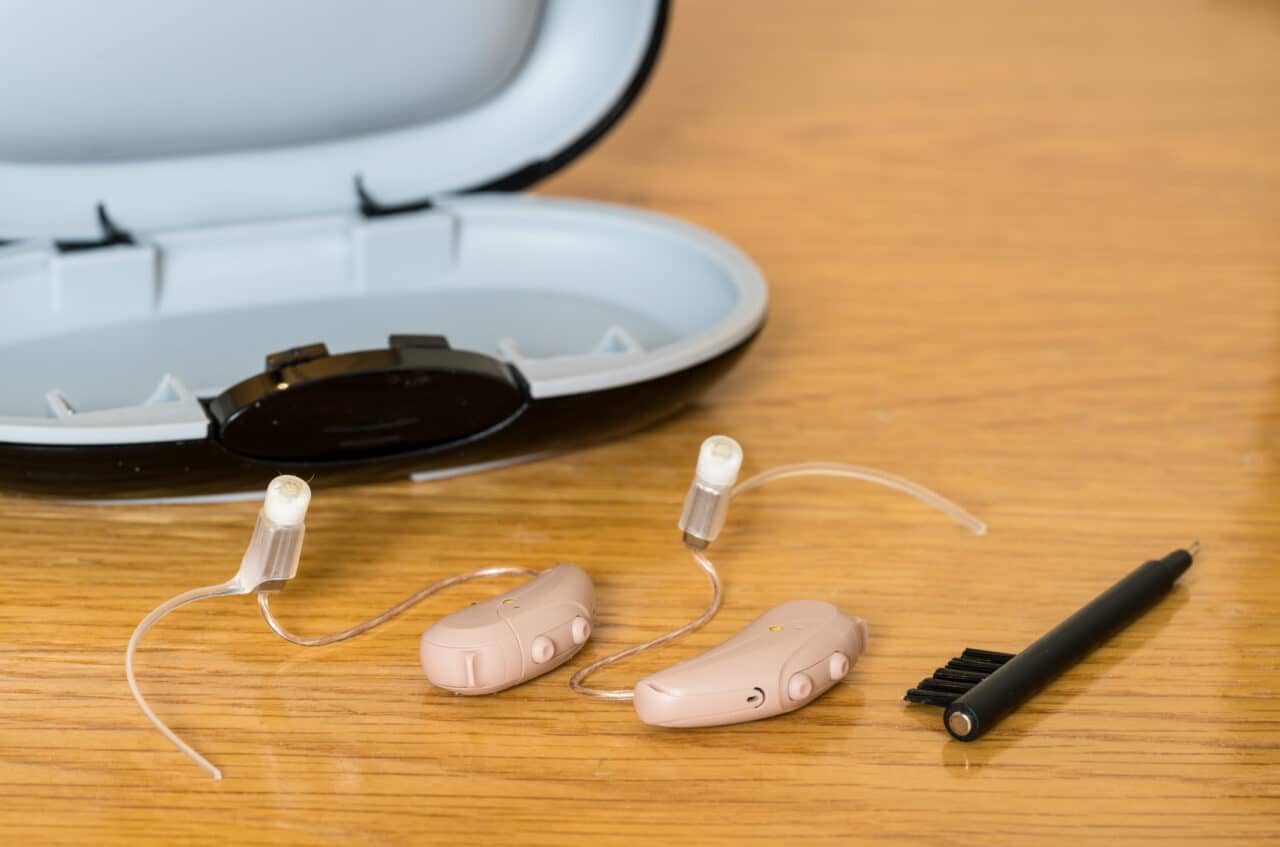Earwax plays an essential role in keeping your ears healthy. However, too much can cause problems, especially for your hearing aids.
How Too Much Earwax Damages Hearing Aids

Earwax buildup is one of the leading reasons for hearing aid repair. This is because, over time, earwax can reduce function and degrade parts of your hearing aid, which can:
- Cause a whistling noise in your hearing aids, known as feedback
- Reduce effectiveness by blocking sound
- Cause your device to fit poorly inside the ear
Not only can too much earwax cause problems for your hearing aids but wearing hearing aids can actually increase the amount of earwax your ears produce, compounding the problem.
According to The National Library of Medicine, “earwax is more likely to accumulate and cause a hearing impairment when normal extrusion is prevented (for example, by hearing aids or by the use of cotton buds to clean the ears).”
Earwax buildup can cause additional temporary hearing loss, as well as tinnitus and ear infections.
Because of the damage that can be done to both your hearing aids and your ears, it’s important to know how to properly clean earwax off your device. While you should visit your hearing healthcare professional every six months to a year for a proper cleaning, there are also steps you should follow on your own to care for your device.
Tips For Removing Earwax From Hearing Aids
- Clean your hearing aids nightly. You can do this by wiping them with a soft, dry cloth. Alternatively, you can purchase a hearing aid cleaning kit with multiple tools to give your device a more thorough cleaning.
- Use earwax filters or guards. These can help keep earwax, dust and moisture from clogging the microphone and receiver. These need to be changed regularly, so make sure to follow the instructions on replacements for the best results.
- Inspect tubing. If you wear a behind-the-ear (BTE) hearing aid, it’s important to check the tube that connects the hearing aid to the earmold and remove any wax you see there.
- Invest in a drying box. Since the moisture from earwax can damage your hearing aids, investing in a drying box can be beneficial. You can put your hearing aids in a drying box every night to remove excess moisture. As a bonus, it also serves as a great place to store your hearing aids!
When To Visit a Hearing Specialist
If you are maintaining a regular cleaning routine but have noticed that your hearing aids don’t seem to be working as well, make an appointment with your specialist. It’s possible that repairs or replacements are needed or that your hearing needs have changed.
Your hearing aid specialist will take the necessary steps to get you back to hearing your best, whether you’re in the office or out for coffee at Hickory Bread Café.
To schedule an appointment or to speak with one of our experts, call Carolina Ear Nose & Throat – Sinus and Allergy Center today.